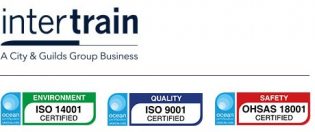Over the past 18 months, we’ve been sharing a series of articles around leadership, covering some of the key skills you need to be a successful leader.
Being strong in one of these areas will benefit you, but developing your skills in all these areas will help you thrive and succeed as a well-rounded leader.
- The Logical Leader: Why Critical Thinking is an Essential Management Skill
- The Innovative Leader: How to Guide Your Team Through Change
- The Motivational Leader: How to Inspire and Develop Successful Teams
- The Strategic Leader: Planning for Long-Term Success
- The Tactical Leader: How to Stay on Track to Your Goals
- The Operational Leader: Improve Efficiency in Everyday Processes
- The Organised Leader: Time Management Tips and Techniques
- The Empathetic Leader: The Importance of Emotional Intelligence
- The Nurturing Leader: Helping Your Team Members Excel
- The Assertive Leader: Communicate with Confidence
- The Decisive Leader: Make Decisions with Conviction
- The Communicative Leader: Listening and Understanding Your Audience
- The Adaptable Leader: Flexible Managers Get Better Results
- The Collaborative Leader: Get Your Teams Working Together
- The Reflective Leader: Using Past Experiences to Develop and Improve
- The Invested Leader: Get More from Yourself and Your Team
- The Mediating Leader: How to Manage Workplace Conflicts and Disputes
- The Turnaround Leader: How to Save a Struggling Team
- The Entrepreneurial Leader: Making a Meaningful Impact
Balance is key
Sometimes you will be able to give your teams autonomy and freedom. You’ll be able to collaborate and experiment. Other times, you will need to take control of a situation and give clear direction and instruction. This might involve making unpopular decisions.
You want your team to trust you and feel comfortable challenging you, but you also need them to respect your authority. Being a well-rounded leader is about creating the right balance.
You won’t always get it right as a leader – nobody is perfect. The important thing is learning from your mistakes, reflecting on your own performance, and looking for ways to continually improve and develop.
How to become a more well-rounded leader
Your skills as a leader will naturally develop with experience, but only if you are open to learning from your successes and failures. If you approach leadership with a know-it-all attitude, you will hinder your progress.
Start by completing a personal SWOT analysis. What are your strengths and weaknesses? What opportunities are available and what could threaten your success?
Don’t rush this process. Take your time to consider each area and treat it as an ongoing project. Go back to your notes at the end of each week or month – is there anything you could add?
Identify your strengths
Look at the areas where you are already strong as a leader. Perhaps you are extremely organised. Perhaps you are an excellent communicator. Maybe critical thinking is your number one strength.
If it helps, read back through our articles and write down the areas you think you are strongest in.
Don’t just list your strengths. Note down examples of where you have demonstrated these skills. What can you learn from these examples? How can you build on these strengths.
Identify your weaknesses
As well as understanding your strengths, it is important to identify your weaknesses. Perhaps you struggle with confrontation? Maybe you need to be more assertive or decisive? Perhaps your time-management is a mess.
Don’t be scared to admit your flaws. If you know what you need to work on, you can put a plan in place to work on it.
Again, read through our articles and list the areas where you feel there is the most room for improvement. Note down examples of where these weaknesses may have impacted your work. How could you avoid that happening again in the future?
Identify opportunities
Now it’s time to look for opportunities to develop your skills as a leader. This might be by putting yourself forward for a project, taking on something that is outside your comfort zone, or developing your skills through training.
Look for people you can learn from, events you can attend, initiatives you can get involved with (both inside and outside of work).
Identify threats
Think about what could hinder your success as a manager. Do you have high staff turnover, poor team dynamics, strained relationships with certain stakeholders?
Are you at a disadvantage because you lack skills in a certain area? Is there a lack of funding or resources in your team? Are there any big regulatory or structural changes coming up that could impact you?
What can you do to minimise these threats?
Make a development plan
Once you have carried out your initial SWOT analysis, make a development plan with clear actions.
Set yourself SMART goals – specific, measurable, achievable, relevant and time-bound.
How can you develop your skills as a leader? What do you need to prioritise? What can you influence yourself and what will you need support with? How will you get that support?
Practice self-reflection
We covered self-reflection in detail in The Reflective Leader because it’s hugely beneficial, both professionally and personally. Thinking about your actions and behaviours and learning from past experiences will help you improve and become a better leader and a better person.
Make self-reflection a habit. Do it regularly – for example, at the end of each week or month. What did you do well? What could you have done better? What were your biggest learnings? What would you like to improve?
Use this information to inform future actions and decisions.
Invest in yourself and get the right support
Invest in your learning and development. Look for training opportunities, books, podcasts, articles or webinars that can help you develop.
Consider working with a mentor or coach who can help you develop and improve. This could be a someone who works within your organisation or it could be an external mentor or coach.
Getting the right support can help you get where you want to be much faster than trying to do it alone.
Developing Well-Rounded Leaders
As a manager or leader, there’s always something new to learn or a skill you can improve and develop. Organisations need to support managers and leaders in this development, but you also need to invest in yourself.
Getting formal leadership and management training will not only help you build your leadership skills, it will also help you grow in confidence, and increase your chances of career progression.
Alternative Partnership delivers ILM-accredited Leadership and Management training programmes to support you and your teams in gaining formal, nationally recognised qualifications.
Find out more about our current ILM courses here or get in touch to discuss how our services could benefit you.












